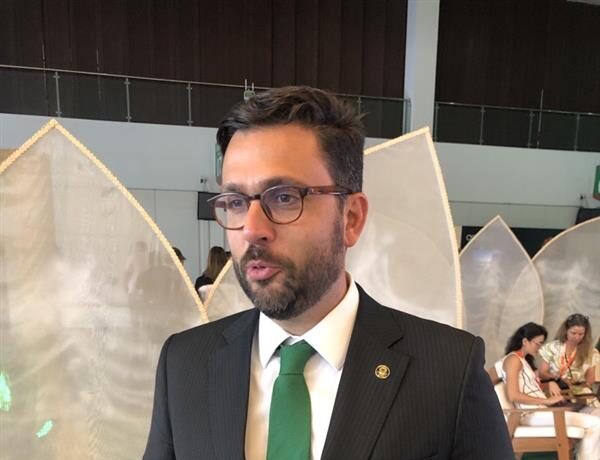
Green and sustainability-linked finance is thriving in Brazil following the publication of an ESG framework by local capital markets association Anbima last year, according to the group’s top executive.
Further growth is expected once the government implements new rules on infrastructure debentures, Anbima’s executive director Zeca Doherty told LatinFinance on Wednesday on the sidelines of the IDB Invest 2024 Sustainability Week in Manaus, Brazil.
“We now have a regulatory framework for green public offerings, which was launched last year. This guide was inspired by ICMA,” he said, referring to the Zurich-based International Capital Markets Association. “We had 37 issuances last year along those ESG lines, with an amount of BRL35 billion ($660 million). This included BRL6 billion in sustainability-linked bonds. On the buy side, we have 91 ESG investments funds,” he said.
“Foreign investors already benefit from this structure that is already in place,” Doherty said.
Doherty said investments are due to increase further as the government is expected to implement legislation that grants tax incentives to issuers of infrastructure bonds by the end of the year. The new rules may also include sustainable bonds.
“We would have incentives for both investors and issuers. This is something we have been asking for for eight years,” he said.
REGULATOR’S VIEW
Meanwhile, the head of Brazilian capital markets regulator CVM, which recently introduced rules governing green and sustainable finance, said regulation is a positive step as it seeks to reward investors not punish them.
“We have to be careful not to create a negative agenda,” said João Pedro Nascimento, president of CVM. “Sustainability is an agenda of rewards. It is a good business.”
“We understand that the sustainability finance agenda and the green economy pave the way to greater growth opportunities for capital markets in Brazil, either through a greater number of issuers or a greater attraction of domestic or foreign investors,” he said.
Nevertheless, Nascimento said it is too early to assess the impact on market activity.
“This is a recent issue. We have not yet had a lot of empirical evidence. It is an ongoing trend. We actually need a bit more time to test models and check things. We need to answer this question in a few years,” he said.
“We have to do things in a gradual way, consistently, step by step, in a voluntary manner, and avoid creating normative costs for market players,” Nascimento said.
















